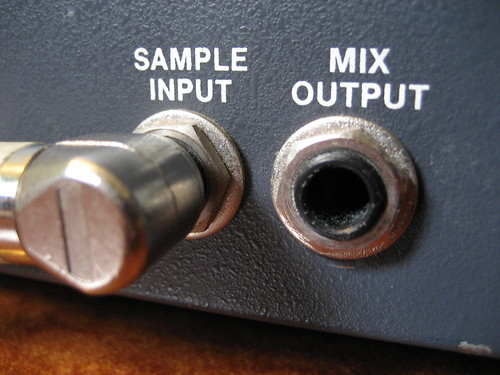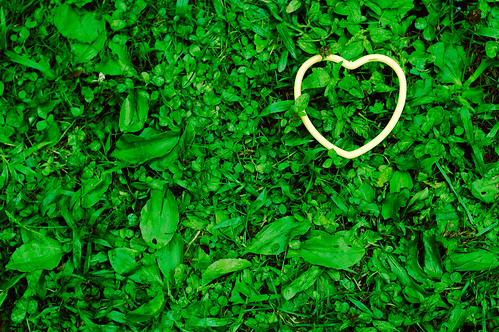 One of the greatest problems in health care, including complementary alternative medicine, is the oftentimes arbitrary nature of treatment and the proposed rationale for its usage. There are certainly some magical mechanisms purported to provide some rather intriguing (and often unsubstantiated) treatment effects.
One of the greatest problems in health care, including complementary alternative medicine, is the oftentimes arbitrary nature of treatment and the proposed rationale for its usage. There are certainly some magical mechanisms purported to provide some rather intriguing (and often unsubstantiated) treatment effects.
Although clinicians like to use phrases like "the right treatment for the right patient", there is oftentimes a lot of arbitrary clinical decision-making that takes place. Of course, this is a reality when you fail to utilize reliable strategies and clinical decision-making algorithms for assessment and treatment selection - but I digress.
At times, you would think that there are a lot of treatments being thrown at the wall, hoping that something will stick. This is what happens when you use the black box of treatment.
 The flurry of activity that is traditionally the first two weeks of a new semester of teaching are now over. For some reason, even after teaching the same class (Functional Anatomy) for 10 years - 8 with the same co-instructor - the first two weeks always seem to be filled with craziness. It's nice to finally get back in the groove for the long haul of a fall semester.
The flurry of activity that is traditionally the first two weeks of a new semester of teaching are now over. For some reason, even after teaching the same class (Functional Anatomy) for 10 years - 8 with the same co-instructor - the first two weeks always seem to be filled with craziness. It's nice to finally get back in the groove for the long haul of a fall semester.
The fall season actually tends to be one of familiarity and comfort. The weather improves - making it far more comfortable to be active outdoors. It is all soon followed by the comforts of Thanksgiving and the holiday season, even with the challenges they tend to dish up for many.
But that doesn't mean that everything settles down in the real world - far from it. With that in mind, here is Episode 75 of the Rhubarb Report, once again reminding us that truth is, in fact, stranger than fiction.
 I vividly remember the stunning, clear blue September sky that day. I drove in to the office like I had done many other times before, listening to my favorite FM radio show to get me laughing before work.
I vividly remember the stunning, clear blue September sky that day. I drove in to the office like I had done many other times before, listening to my favorite FM radio show to get me laughing before work.
Then the laughter stopped. And the unimaginable happened.
The images on television cut us to the core. We stood transfixed as we watched our collective national innocence end right before our very eyes.
It's been hard to find our way forward since that tragic day.
 When texting and tweeting became a part of our daily lives, I can't say that I thought they would have much value in terms of effective communication. Let's face it, they are both, in many ways, highly impersonal and almost passive-aggressive at times. They also contribute to what is rapidly becoming a wide-diameter firehose of digital data that is exceedingly difficult to control.
When texting and tweeting became a part of our daily lives, I can't say that I thought they would have much value in terms of effective communication. Let's face it, they are both, in many ways, highly impersonal and almost passive-aggressive at times. They also contribute to what is rapidly becoming a wide-diameter firehose of digital data that is exceedingly difficult to control.
For many, texts and tweets have become the bane of our existence.
But I have come to appreciate both of them. Their benefit may not lie in the ease of interaction, but in the skills that can be gained. Brevity is everything.
 Hey, I know you. You are a rational, logical person. You have followed a series of methodical, logical steps in your clinical decision-making. Your thought processes have brought you to the edge of the proverbial cliff in your thinking.
Hey, I know you. You are a rational, logical person. You have followed a series of methodical, logical steps in your clinical decision-making. Your thought processes have brought you to the edge of the proverbial cliff in your thinking.
You glance over the edge. It's a big jump, a bit of a leap of faith if you will, to make the next step.
There is one logical step to make to move forward. But what happens when you walk to the edge? Do you take the step forward and follow your clinical reasoning through to its next logical progression? Or do you step back from the edge?
Welcome to one of the biggest challenges in clinical reasoning - and life in general.
 There is always a certain degree of excitement at this time of year. It's the start of a new semester of teaching, which is always an adventure regardless of how many years you have taught the course. Ten years into teaching functional anatomy and I can say it is still a fresh slate on the first day of class.
There is always a certain degree of excitement at this time of year. It's the start of a new semester of teaching, which is always an adventure regardless of how many years you have taught the course. Ten years into teaching functional anatomy and I can say it is still a fresh slate on the first day of class.
It is also the start of college football season. With college football comes the thought - admittedly faint right now - that fall weather will soon be here. Call me an optimist I guess - and a sweating-profusely-in-August one at that.
This episode of the Rhubarb Report takes us back in history, and looks ahead to something that hopefully won't create it.
 For many people, New Year's Eve rings in the start of a new year, new goals, and a rejuvenated existence. The new year is filled with the prospects of growth and new experiences that lie ahead.
For many people, New Year's Eve rings in the start of a new year, new goals, and a rejuvenated existence. The new year is filled with the prospects of growth and new experiences that lie ahead.
To me, New Year's is just another arbitrary day. Your birthday, however, is truly the start of a new year. I have always found my birthday to be a time for reflection, a time to learn from the past and present and embrace the growth of the future.
My birthday this year was no different. With that in mind, here are a few not-so-random thoughts from my day of reflection this year. Maybe some will resonate with you.
 "Running Injuries: Etiology And Recovery- Based Treatment" (co-author Bridget Clark, PT) appears in the third edition and fourth editions of "Clinical Orthopaedic Rehabilitation: A Team Approach" by Charles Giangarra, MD and Robert C. Manske, PT.
"Running Injuries: Etiology And Recovery- Based Treatment" (co-author Bridget Clark, PT) appears in the third edition and fourth editions of "Clinical Orthopaedic Rehabilitation: A Team Approach" by Charles Giangarra, MD and Robert C. Manske, PT.
 Allan Besselink, PT, DPT, Ph.D., Dip.MDT has a unique voice in the world of sports, education, and health care. Read more about Allan here.
Allan Besselink, PT, DPT, Ph.D., Dip.MDT has a unique voice in the world of sports, education, and health care. Read more about Allan here.
 Top 5 finalist in three categories: "Best Overall Blog", "Best PT Blog" and "Best Advocacy Blog".
Top 5 finalist in three categories: "Best Overall Blog", "Best PT Blog" and "Best Advocacy Blog".